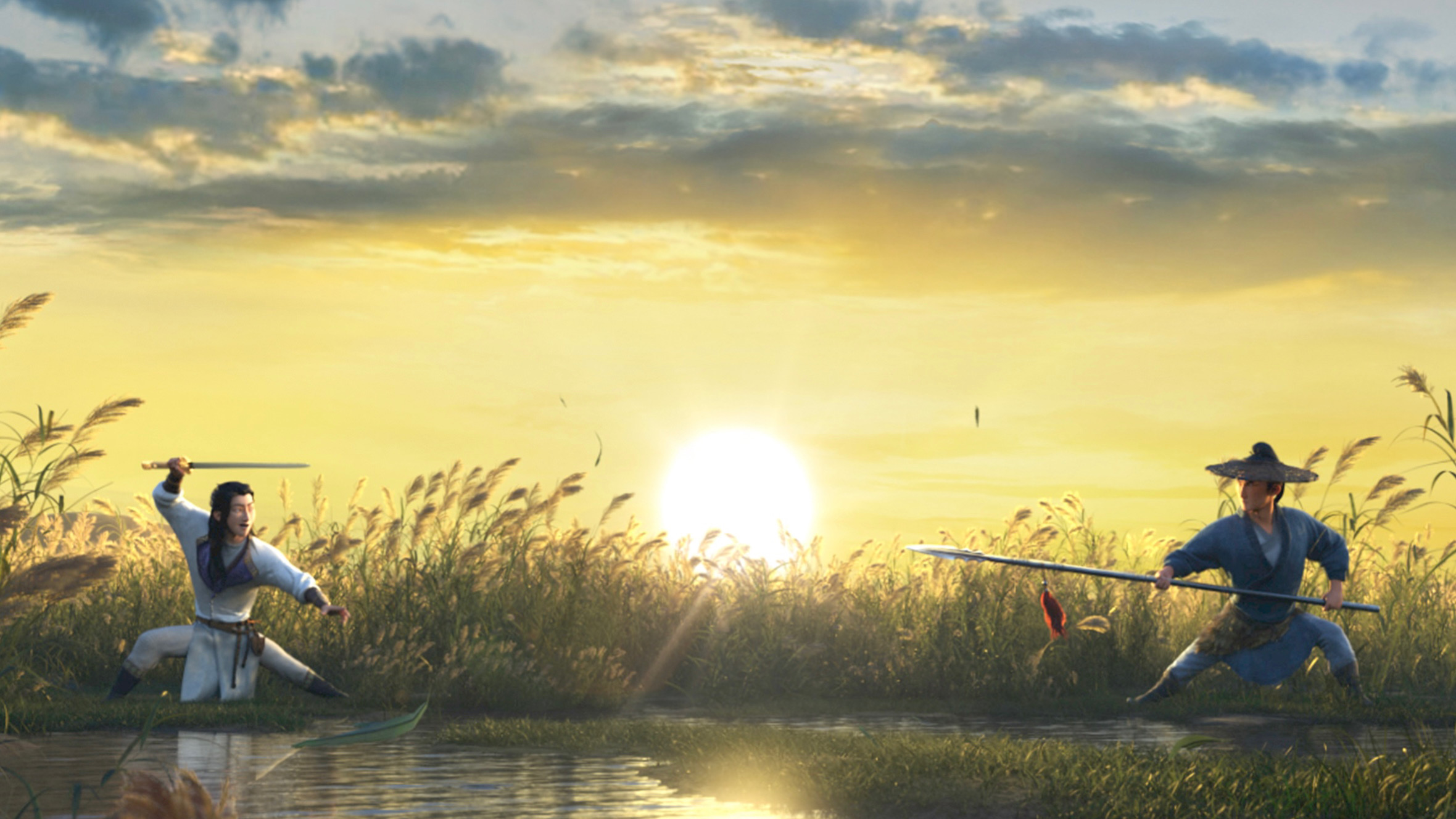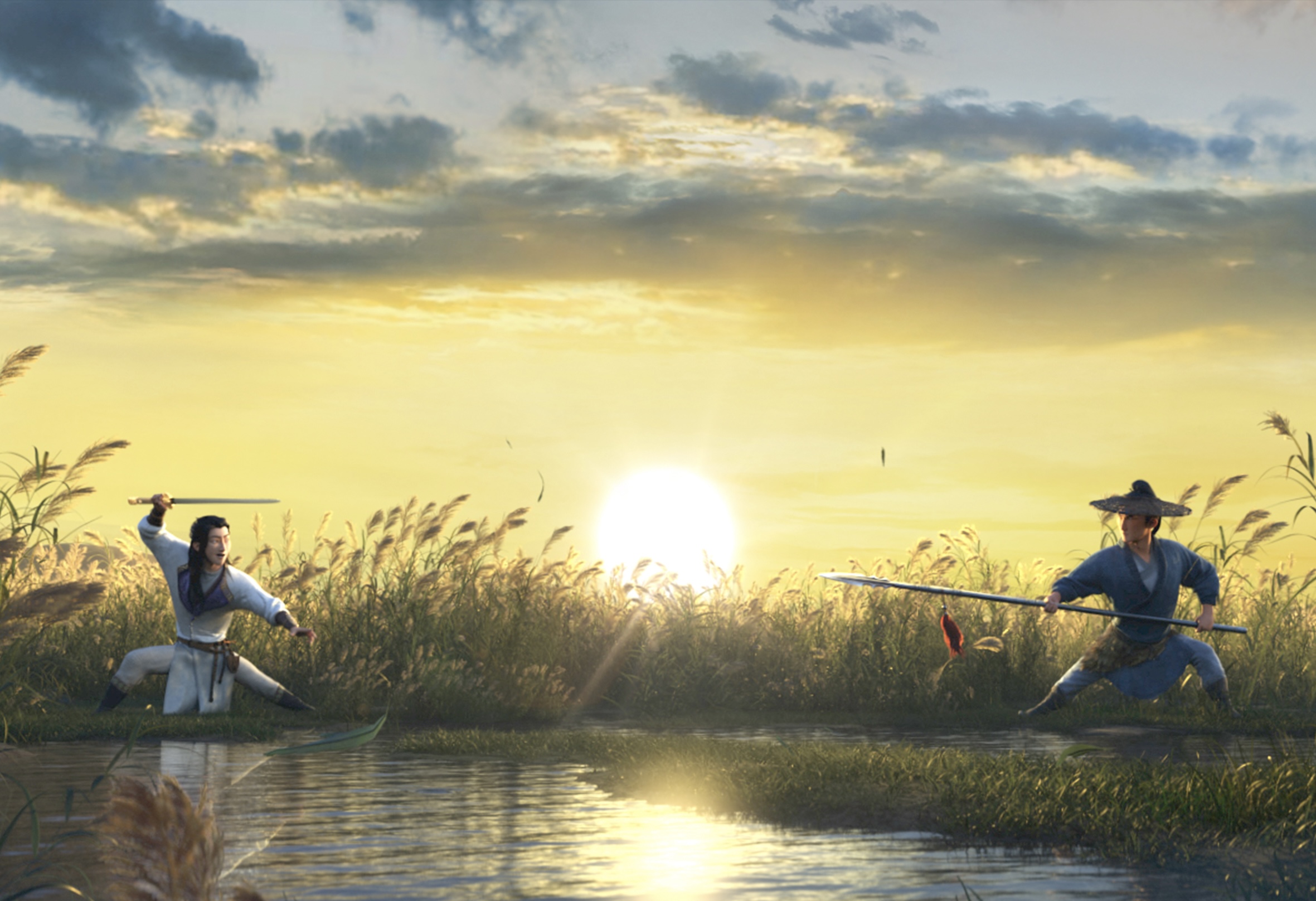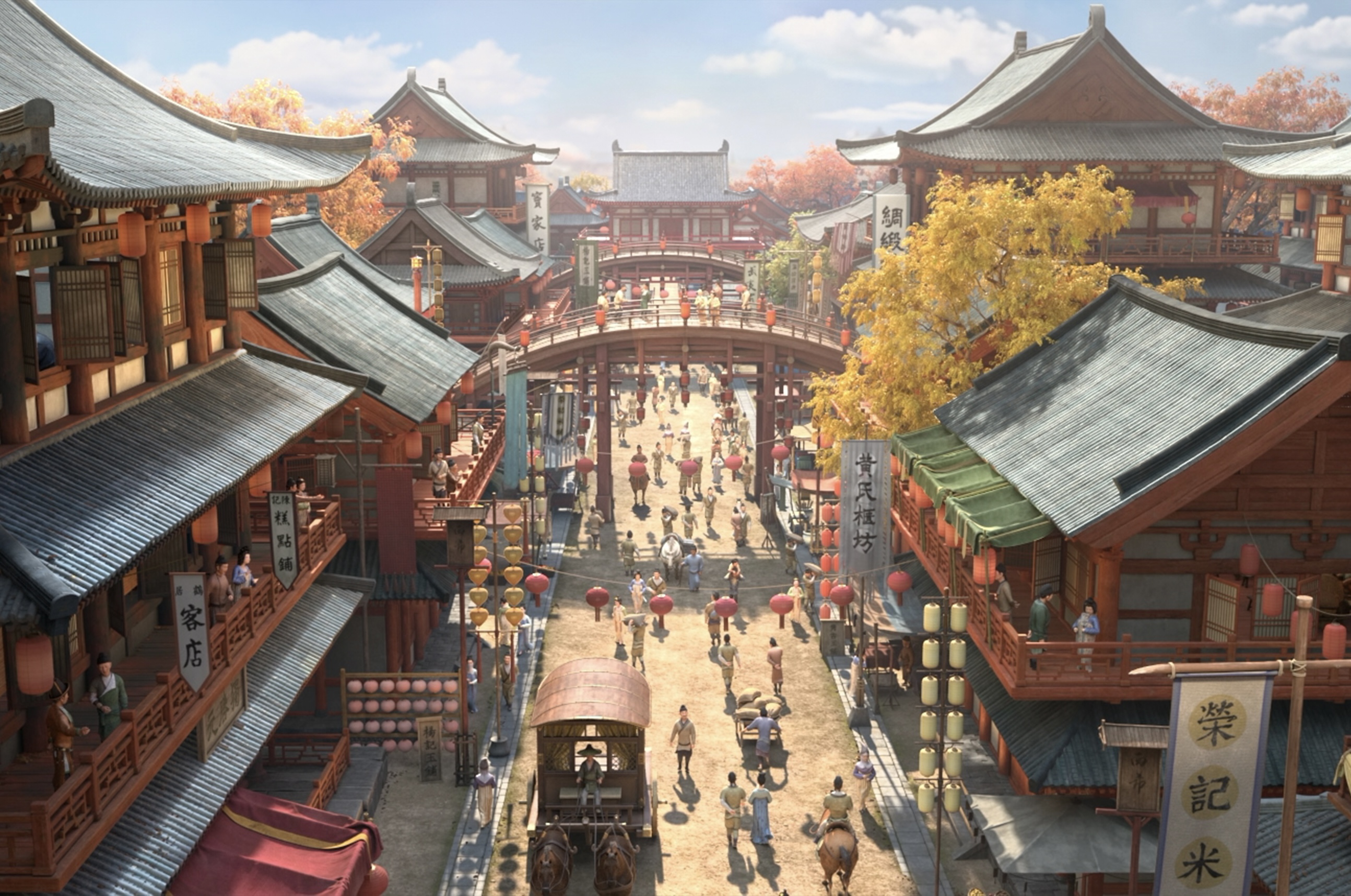06:32

An animated film showcasing the brilliance of Tang Dynasty (618-907) poets is captivating audiences this summer, with box office receipts topping 1.6 billion yuan and rising. The Tang Dynasty is widely recognized as an era that fostered a deep appreciation for and mastery of poetry. The enduring nature of these poems, which are still recited today, is sparking a renewed passion for traditional Chinese poetry and a desire to delve into the lives and times of these renowned poets.
The movie "Chang An" begins with an elderly Gao Shi recalling the past. The movie depicts the ups and downs of the lives of Gao Shi and Li Bai, as well as their enduring friendship. It also explores the lives of other great poets during the Tang Dynasty.
During the prosperous period, a remarkable group of poets emerged. Their extraordinary talent, turbulent lives, and pursuit of personal journeys resonated with audiences.

A still from the animated film "Chang An" /Copyright by "Chang An"
A still from the animated film "Chang An" /Copyright by "Chang An"
"The Tang Dynasty was a period of great confidence, inclusivity and cultural sophistication that has come to represent our country. We wanted to make a movie that captures the essence of that era. When we thought of the Tang Dynasty, we naturally thought of poetry, as Tang poetry is a significant representation of Chinese culture and art," said Zou Jing, director of "Chang An." "And when we thought of poetry, we immediately thought of Li Bai. Later on, we also thought of Gao Shi, as we wanted to explore the story from his perspective and allow the audience to better immerse themselves in the story."

"Chang An" directors in an interview with CGTN /CGTN
"Chang An" directors in an interview with CGTN /CGTN
There are 48 poems in the movie, showing the rich poetry culture of that time. Li Bai, Gao Shi, Du Fu, Wang Wei... these names have become familiar to people in China, who have spent years reading and memorizing the poems.
The movie weaves together the lives of these master poets, not only offering a comprehensive view of the magnificent "Chang An," but also bringing to life the scenes depicted in their poems by combining traditional ink painting imagery with the latest animation technology.
"Whether through documents, history, images, or first-hand exploration, we wanted to bring the magnificent beauty of the Tang Dynasty to everyone. Our goal has always been to capture the essence of Eastern aesthetics," said Xie Junwei, another director of the film. "In our three-dimensional presentation, we have carefully considered composition, lighting, and color to present these scenes like a painting, showcasing the unique features of different regions and the spirit conveyed in the poems of these poets."

A still photo of the animated film "Chang An" /Copyright by "Chang An"
A still photo of the animated film "Chang An" /Copyright by "Chang An"
In early July, "Chang An" premiered in Xi'an, once a capital of China in ancient times. The ceremony recreated the magnificent scenes of the Tang Dynasty in the film. The entire film crew meticulously prepared for the production by conducting extensive research, seeking advice from numerous experts, and receiving guidance from etiquette professionals to ensure accuracy. They also conducted field research in places such as Xi'an, formerly known as Chang'an, and the Shaanxi History Museum.
Film Commentator Sha Dan said: "On one hand, it allows everyone to enter the world of movies and experience the stories of poets. Children can also recite some of the poems in the movies. I believe this is just the beginning. It actually provides a powerful and positive stimulation to our entire traditional culture. I think it is a very beneficial stimulation."
Li Bai's timeless poem "Invitation to Wine" is widely regarded as the pinnacle of the movie. The team spent nearly two years refining the intricacies and enhancing the visual and auditory elements to create a fantastic setting.
"It exemplifies the dual nature of Li Bai, who constantly struggles between the worldly and spiritual realms. Throughout his life, he experiences a sense of heroic freedom and natural joy, but also a deep sorrow, which is expressed in 'Invitation to Wine.' The poem constantly oscillates between these two emotions, conveying both with great intensity," said Zou Jing.
Although the movie depicts ancient stories from Chinese history, the emotions and essence of humanity can be universally understood and appreciated. "In this movie, we are actually talking about a group of individuals who may be unknown to some foreign audiences as poets. We talk about how these individuals are relentless in their pursuit of their ideals, a spirit that is universal across nations and countries," said Xie Junwei. "The feelings between people are also universal. We hope to resonate with foreign audiences from this perspective and captivate them with our story, and more importantly, create interest in these individuals."
The stunning visuals and vivid story of "Chang An" ignited a strong emotional bond with the audience. The innovative depiction of traditional culture has been well received. However, it is a challenging task to gain recognition and captivate audiences with such films. "Chang An" has successfully set a positive precedent, and the release of more productions will perhaps follow suit.